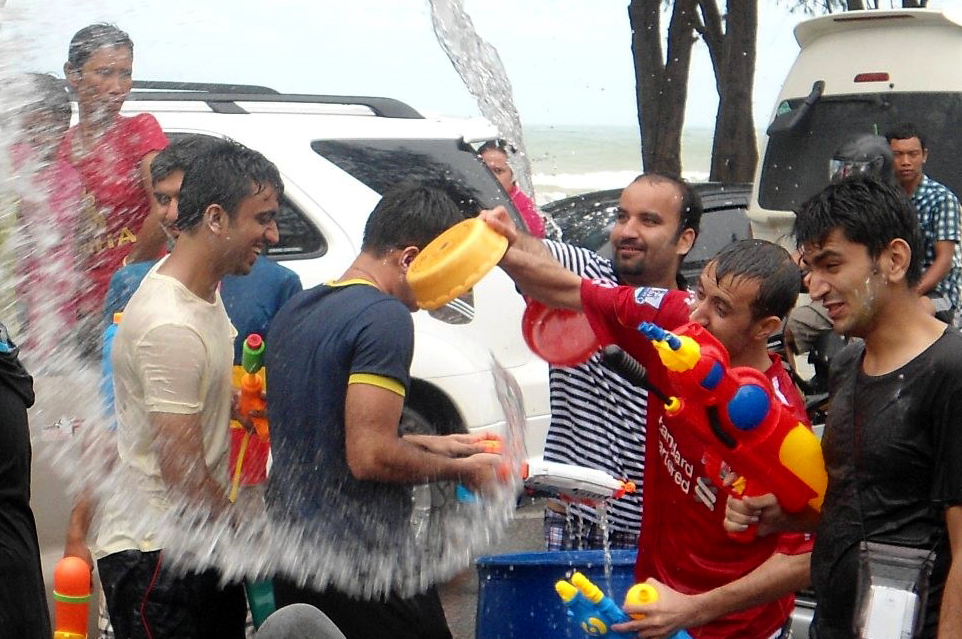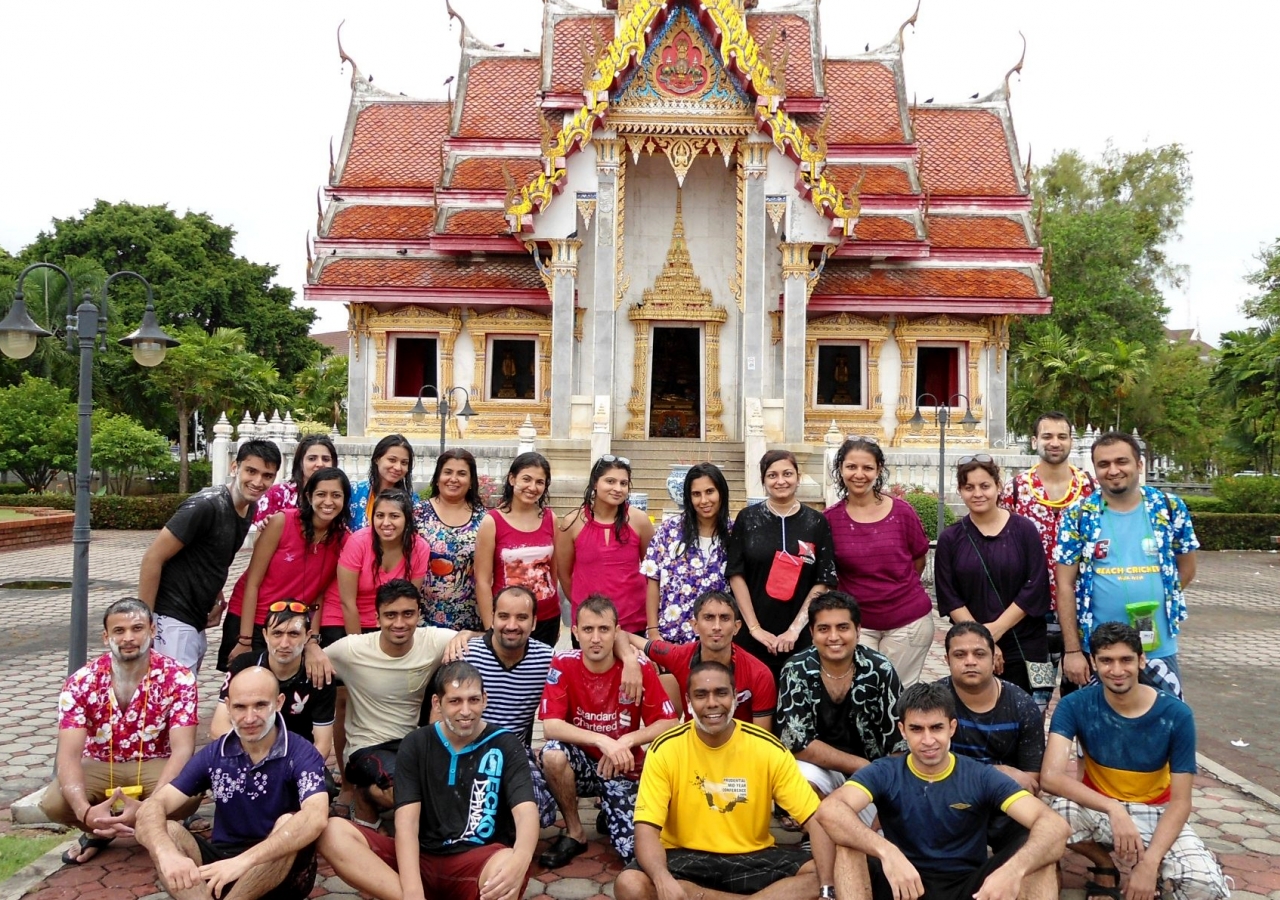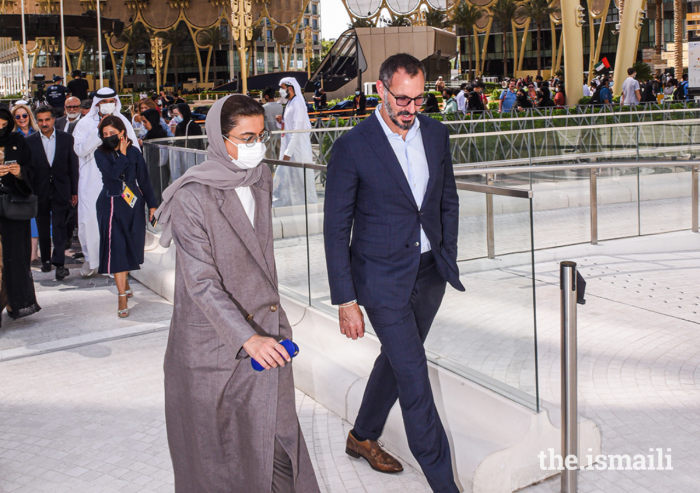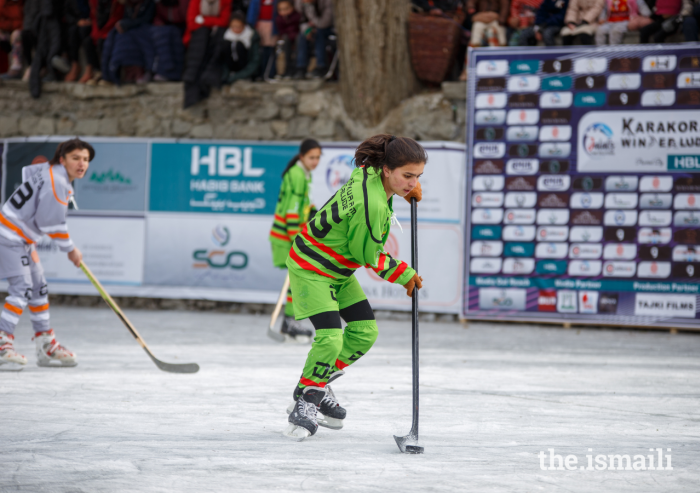Celebrated in mid-April, Songkran symbolises a new beginning, in which the splashing of water is seen to wash away all of the bad karma of the past year. In essence, the ritual represents cleansing and renewal; a feature shared with many cultures where water is synonymous with purification.
Over the years, the water festival has drawn a growing number of international visitors interested in immersing themselves in Thai culture. As a local in Thailand and having celebrated this festival annually, it was exciting to have other young Ismailis from Malaysia, Singapore and elsewhere in Thailand come together to share this experience with me.
 Celebrating Songkran with a splash! The Thai new year's tradition is well known for its water festivities. Naeem Ullah Khan and Shaakir Siraj
Celebrating Songkran with a splash! The Thai new year's tradition is well known for its water festivities. Naeem Ullah Khan and Shaakir SirajThai culture is full of traditions and beliefs that comprise a way of life. The majority of people in Thailand are Buddhist, but Muslims form the second largest faith community in the country. Over time, qualities from both heritages have become interwoven in the social fabric – and this is evident in the Hat Yai province. Harmony is valued in society, and this can be seen in the mosques and temples that gracefully dot the country.
In Songkhla, locals started the celebrations by splashing water on passers-by. For the first-timers it was an eye-opener, and a lot of the youth were surprised to see the whole city partaking. Our group quickly joined in the celebrations, and everyone was drenched within minutes.
“The festival itself was a great way to experience Thai culture,” said Shamira Karim Ally, a participant. “Partaking in the Songkran festival gave me an opportunity get to know my Ismaili brothers and sisters and to connect with them in a different environment. The best part for me was that there was a feeling of inclusiveness as we immediately felt part of the celebrations.”
 An Ismaili from Thailand smears chalk paste on a visiting member of the group: a Thai tradition of sharing blessing during Songkran. Naeem Ullah Khan and Shaakir Siraj
An Ismaili from Thailand smears chalk paste on a visiting member of the group: a Thai tradition of sharing blessing during Songkran. Naeem Ullah Khan and Shaakir SirajAs we moved towards the hub of the festival, ice-cold buckets of water were being splashed around. Locals along the streets generously shared their water with us, and also gently applied traditional white chalk to our cheeks while wishing us a happy new year. These chalk markings are for protection and good luck, and are often applied by monks to new cars and entrances to homes.
Azmin Saduruddin, Member for Youth & Sports on the Ismaili Council for the Far East organised the trip. “The plan came up as I was doing research on cultural experiences in the Far East,” he said. “I had heard about the water festival, but did not know much about it.”
It proved to offer an experience that would appeal to the youth and give them something unique to remember. “Traveling in the bus with the group for an overnight ride was a first time for most of us,” noted Saduruddin; for some it was their first international trip.
As the sun went down and the streets had cleared, we settled down at a local restaurant with a view of the ocean. We enjoyed traditional seafood cuisine and reminisced about our memorable day. “Having our meals together, shopping at the local markets, having tasted authentic Thai cuisine, and celebrating the festival together made this one of the best experiences ever,” reflected Saduruddin.
Personally, I was most glad to have enjoyed this Thai tradition with other young Ismailis from the Far East.









